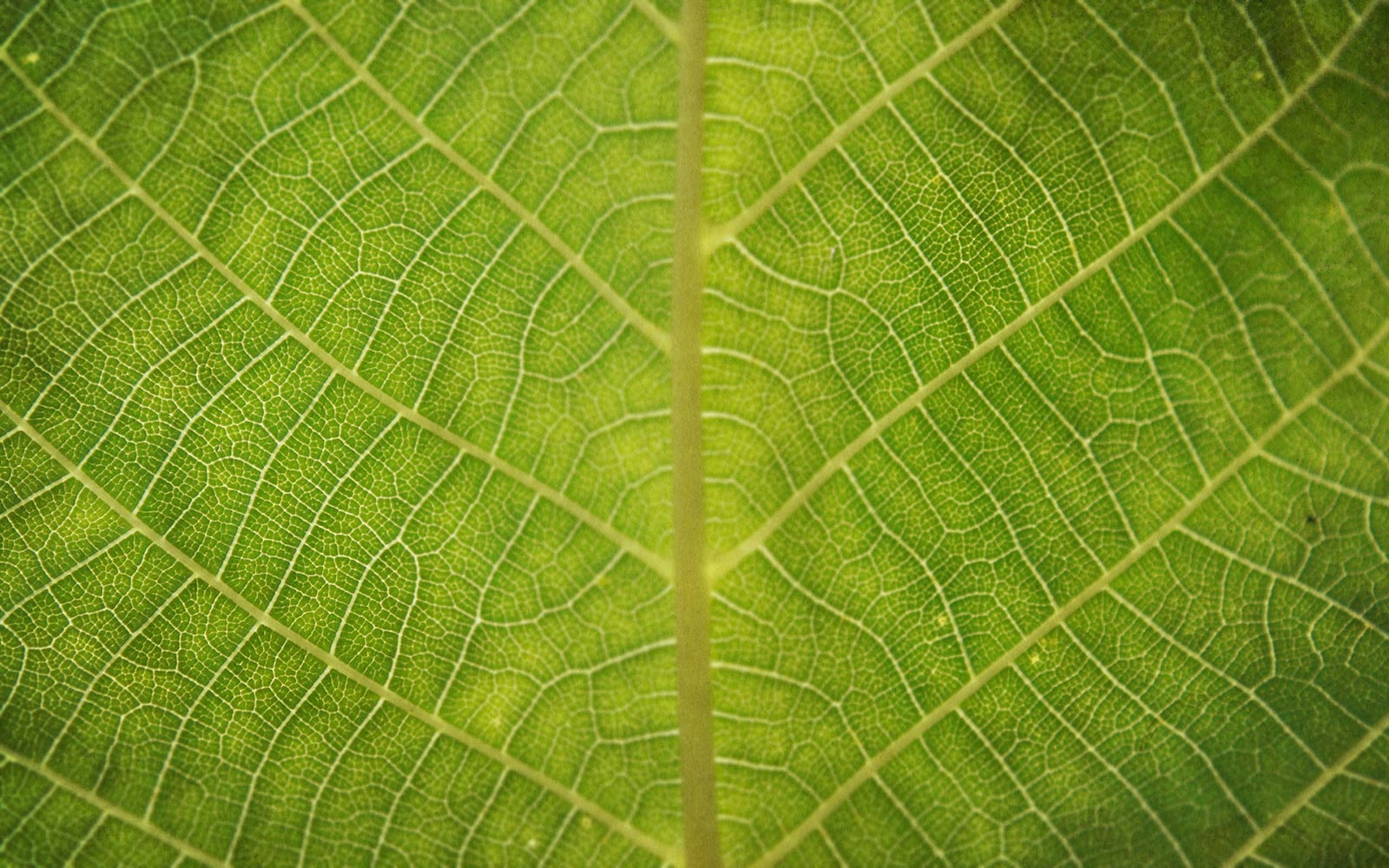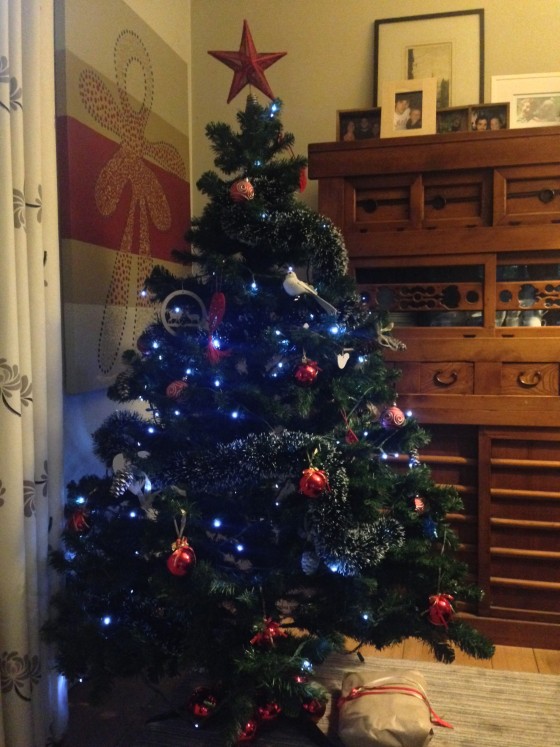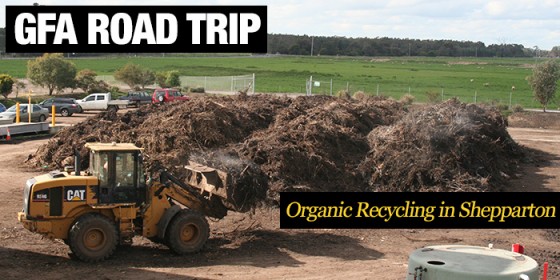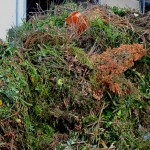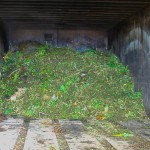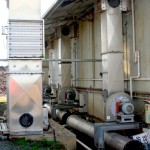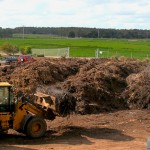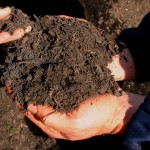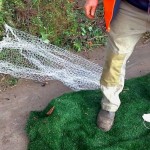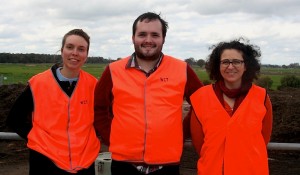It is only couple of weeks away now until Christmas day so the frenzy of shopping for the big day is in full swing. This Christmas, taking time to be conscious about your consuming can help reduce the amount of waste that will end up in landfill after the festive season.
All posts tagged Organic Recycling
Aim to Sustain in 2016
We are almost to the end of 2015 which is incredible as it just seems like yesterday when the year began. So before the year disappears on us completely, it is a great opportunity to set your sustainability targets for 2016, setting us up for success at reducing our environmental footprint….lets ‘aim to sustain’ in the new year!
GFA Road Trip to Organics Facility
In August, the Great Forest team travelled to Shepparton to check out an Organic Waste Recycling facility run by Corio Waste Management (called the Shepparton Advanced Resource Recovery Technology (AART) facility). This facility takes organic waste from the local council’s kerb side collection and produces compost that is used by local agriculture and landscapers. For Jacqui & I, this was the first time we’d seen such a facility and we were all blown away by the professionalism and efficiency of this facility.
The role of an organic recycling facility is to manage and control the conditions of the biological decomposition of organic materials. Organic material includes green waste, which is the predominant source for this facility, as well as food organic waste and liquid waste. This is similar to composting at home, but on a larger (and more regulated) scale.
Organic recycling requires heat, water, air and time for the microbes and other organisms to do their work. The Corio AART facility manage these conditions by using three large “bioreactors” which are heavily monitored through advanced sensor technology. These sensors allow them to track the water content, airflow and temperature within the organic material[1]. A system of fans, heaters and water pumps then optimise the temperature, airflow and moisture content to create safe and high quality compost. In the flesh, this system looked as impressive and sophisticated as it sounds and contrary to my expectations, we did not experience any foul odours – just warm earthy compost with a pleasant smell and feel[2].
- This batch of waste was delivered while we were on site.
- A peek inside one of the partially empty ‘bioreactors’.
- Ventilations, heating and water pumps that make it all possible.
The benefits of recycling (or composting) organic material as opposed to sending it to landfill are two fold. The first one is reasonably simple; it creates high quality compost that is used by agriculture, landscapers and in your own garden or veggie patch to improve growth by improving soil structure. The second reason is that the process of organic decomposition in landfill occurs without the presence of oxygen. Without oxygen, this process produces large amounts of methane, a potent Greenhouse Gas and large contributor to Climate Change. So by recycling our organic material or composting at home we avoid creating a harmful Greenhouse Gas, create a useful resource for use in agriculture and reduce the amount of waste sent to landfill.
- Compost moving from the bioreactor to dry out.
- Composted food waste, a wonderful gift for our soil
- Astroturf as a form of ‘Green Waste’.
During our visit, we were witness to and discussed the main complication with organic recycling – contamination. Foreign material, such as plastic bags, containers, foil and plastic Christmas trees (not a joke)[3][4], are often present in garden and green bins cannot be placed in the reactor and must be separated prior to use. There is no easy way to separate this material; their team spreads out each new load of organic material and pulls out all unsuitable material – which usually takes two or three attempts. Needless to say this is a time and cost expensive procedure (they have to pay to send contamination to landfill) and consequently they reject loads of waste that are highly contaminated. This serves as another reminder to put waste in the right place.
I for one feel privileged to have been able to visit the Corio AART Organic Recycling facility in Shepparton. They run an amazing facility and we wish them all the best as they seek to expand and further improve their facility.
[1] For those interested in the technology behind the facility, there’s info on Corio’s website here
[2] Foul odours are indicative of a poorly managed composting process, but don’t let that throw you off. An easy guide to making and ‘fixing’ your own compost can be found here. (NSW Department of Environment)
[3] Surprisingly (or maybe unsurprisingly), plastic Christmas trees are not a one-off find, but are consistently seen in their green and garden waste around Christmas.
[4] Disposable nappies are a common form of contamination (also not a joke).
